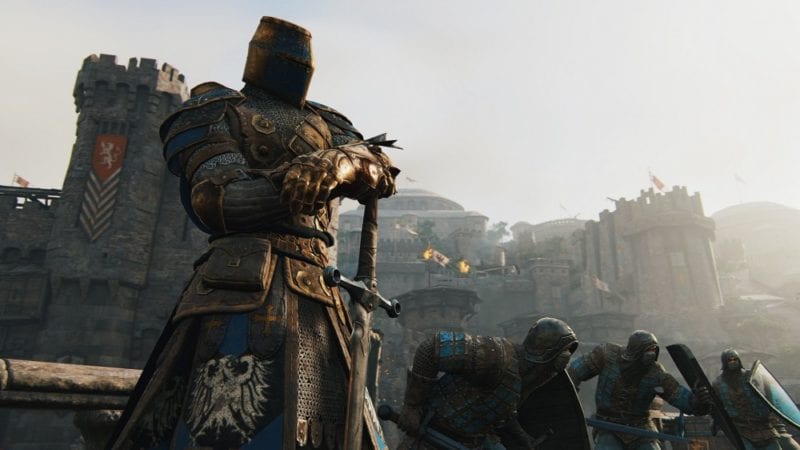For Honor is a game about war. Ubisoft’s new title has three factions–the Chosen, Warborn, and Legion– fighting against one another in online multiplayer matches in a way that’s more akin to actual battles with swords and shields as opposed to gunning one another down. Reactions so far in the last few days have been fairly positive, but one thing that hasn’t been given much attention is its single player campaign.
To be fair, Ubisoft has largely been downplaying the story mode of For Honor since its announcement, with primarily a focus on the multiplayer proceedings. In all honesty, there’s a good chance that you could ask many if they knew there was a story before they picked up the game, and the answer would likely be a resounding “no.” And that is something of a mistake, because it’s actually fairly fun after a fashion, which is all the more surprising given how games with a downplayed single player generally turn out. It’s not groundbreaking, not revolutionary, but it avoids the pitfalls of other AAA titles such as the original Titanfall in that there’s more going on here than what you’d expect from the box art.

Unlike most war games, the proceedings in For Honor are fairly peaceful by the time things start. All three factions have given up the bloodshed and violence; the Iron Legion Knights follow the words of their more pacifist royalty, the Samurai (Chosen) have submitted to the order of peace as dictated by their emperor, and the Warborn Vikings have banded together so their families can live to see another day. All three groups have characters that look like they don’t even know the meaning of the word peace or how to go more than a handful of minutes without murdering something violently, but here they all are, just living out their days. So what could make them take up their weapons and go back to the ways of old?
Enter Apollyon, a warlord and master manipulator who twists things to her advantage all in the name of war. The armored warrior has an army at her command, and the idea of all these groups making nice doesn’t sit right with her, leading to her to take control of the Legion by killing her rivals so she can separate the weak from the strong, so to speak. That’s pretty dang diabolical, especially since all of the game’s story is done in part by a bloodthirsty woman during a time where such things were uncommon.
History has been no stranger to female warriors in either of the cultures represented here–director Jason Vandenberghe flat out admitted that they’re not trying to be true to history– but Ubisoft’s approach with the story of For Honor has just been to drop Samurai, Knights, and Vikings in a battlefield and just roll with it. If you’re expecting nuance or a particular endgame in mind for her, there isn’t one: she just loves fighting and believes in survival of the fittest. Apollyon is delightfully evil and makes for a great villain when all things are said and done.
With a wicked villain and three groups all being tricked into killing each other for her, For Honor runs the risk of making the “heroic” characters look too stupid over the course of the single player before they all come together. That thankfully doesn’t happen; after becoming a Legion Knight, the player character quickly wises up to Apollyon’s intentions and defects, with the following moments where you play as a Viking and Samurai respectively about repelling her forces and uniting the other groups to bring an end to her schemes. The writing for the game is as good as it needs to be, with themes of redemption and honor peppered throughout and characters being the archetypes that they look like. It won’t win any awards for either its cast or writing, but it gets the job done and provides a solid backdrop for these people to hack each other to bits to.

It’s likely that Ubisoft is playing the long con with For Honor in regards to multiplayer, just like it has the past two years with Rainbow Six Siege. That’s perfectly fine, but at the very least, its story mode is trying to make an effort with an effective villain and a soundtrack that wants you to feel like a warrior trying to fight for a better future. Much like Battlefield 1’s grim take on an already grim war, it’ll likely stick with you in how surprisingly captivating it can be, and sometimes, that’s all you can ask for.
